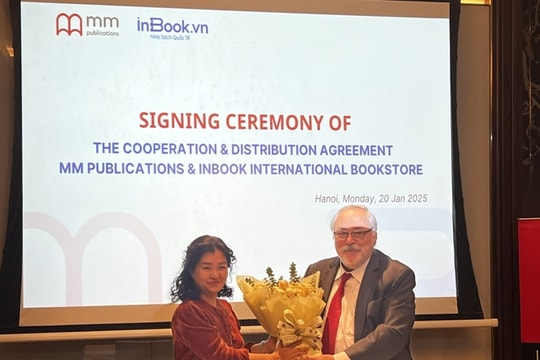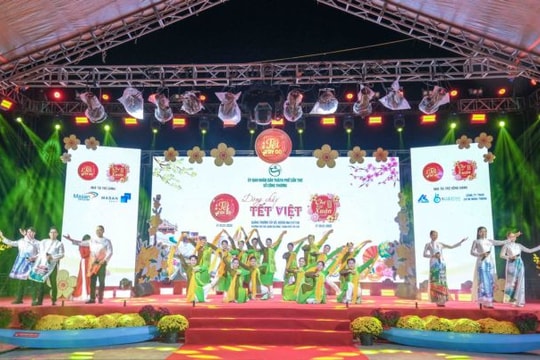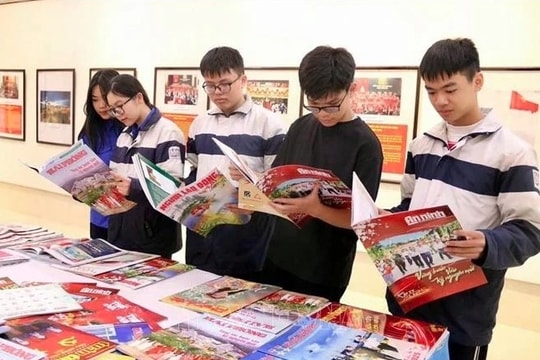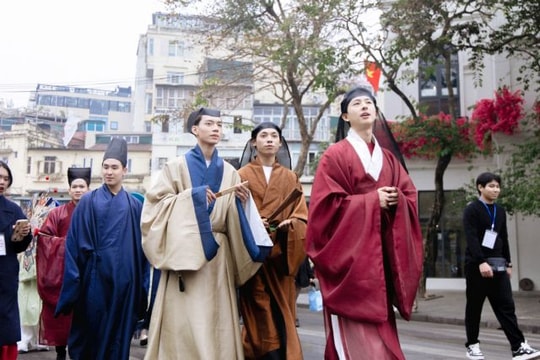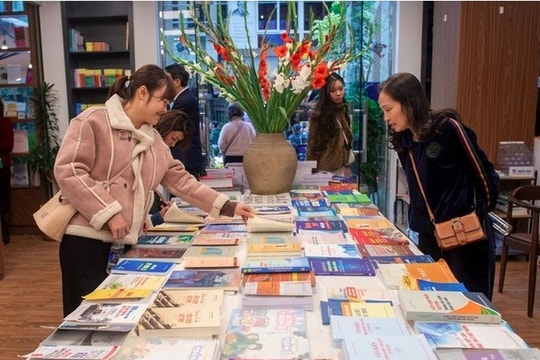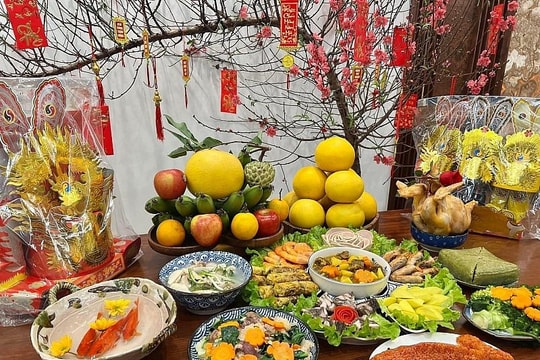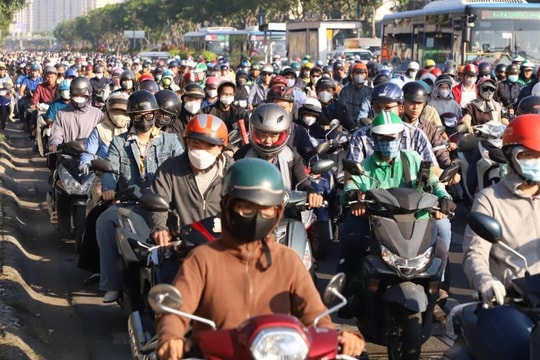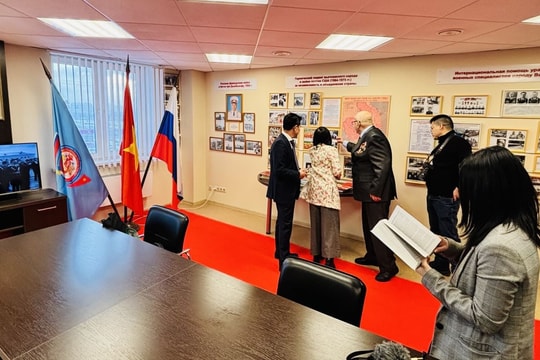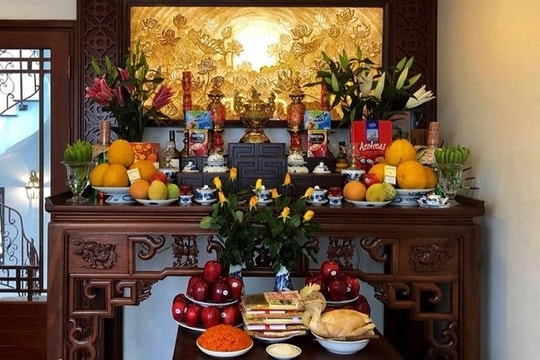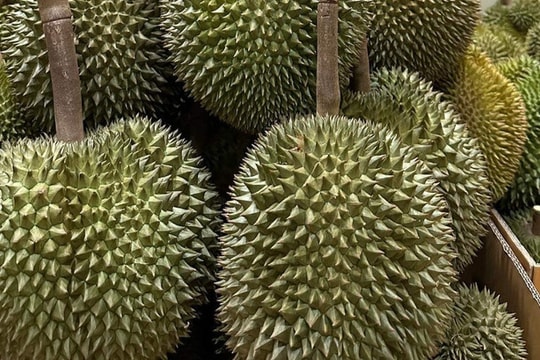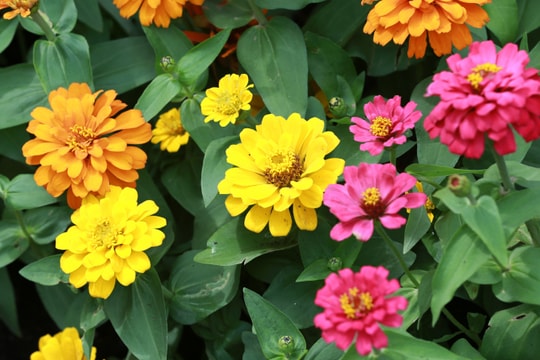By Trần Khánh An
Tunku Mona Riza, a prominent Malaysian film director and producer, is best known for her debut feature film Redha (Beautiful Pain). The film garnered 17 international and local awards, making it Malaysia’s most-awarded Malay-language film.
With her latest feature, Rain Town, Tunku Mona breaks new ground as the first Malay female director to helm a Cantonese-language film. The movie tells the story of a Cantonese family in Malaysia, highlighting the nation's rich cultural diversity.
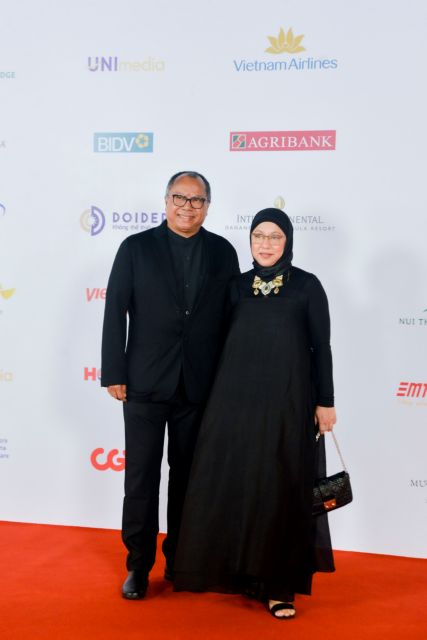 |
| Tunku Mona (right) with her husband, Ku Mohamad Haris Ku Sulong, who is also Rain Town’s producer. Photo courtesy of Anh Vũ/DANAFF |
Communication matters
Rain Town follows the Choo family, featuring a Cantonese Malaysian father, his Eurasian wife, and their three children. Choo is a traditional and patriarchal figure, who expects his children to adhere to his expectations, causing conflicts as they pursue their own dreams.
Tunku Mona explained to Việt Nam News that the inspiration for the film came from observing the generational gap between parents and children.
“Despite technological advancements, there remains a disconnect between parents and children. They often struggle to relate to each other,” she said, emphasising the importance of meaningful communication, despite the prevalence of modern technology.
“Nowadays, during family dinners, everyone is glued to their phones, communicating mostly through text messages. However, direct communication and physical presence are crucial for understanding each other's feelings, regardless of technological progress," she said.
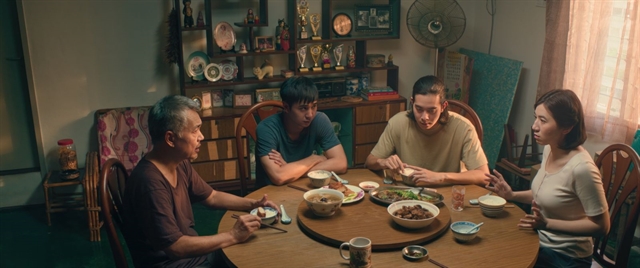 |
| A scene of Choo and his three children in Rain Town. Photo courtesy of Current Pictures |
The family faces a turning point when Aileen, Choo's wife, is diagnosed with cancer, intensifying the family's existing tensions. Each member copes differently, making reconciliation seem almost impossible.
“Ultimately, we cannot control whether we live or die, but the journey of life is important, and hope is what helps us stay positive,” Tunku Mona said. “Through this film, I want to convey that we must offer hope and support to those battling illness.”
The film is set in Taiping, Perak, Malaysia, a town known as the “rain town” due to its record-breaking rainfall in Peninsular Malaysia.
Tunku Mona described the rain as “another character” in the film. “In Malaysia, there’s a saying that translates to ‘calm will follow every storm’. That's why the film's climax and intense emotions coincide with the town's heaviest rain,” she said.
Embracing diversity
Malaysia's film industry is divided into linguistic and cultural markets, catering to various ethnic groups, such as Chinese (Mandarin or Cantonese), Malay (Bahasa Malaysia), and Indian (Tamil). Each community typically consumes media in their native language.
By creating a Cantonese film centered on an ethnic Chinese family, Tunku Mona aims to showcase the importance of cross-cultural interactions in maintaining Malaysia's harmonious multiracial society. She believes that, with proper research and respect, artists can authentically tell stories from other cultures' perspectives.
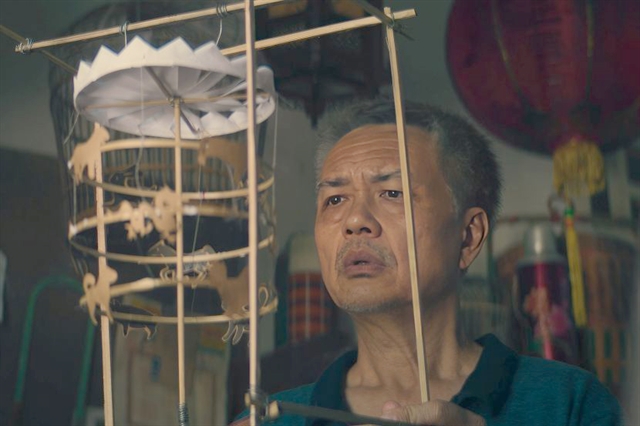 |
| Rain Town conveys cultural values of Chinese ethnicity in Taiping, Malaysia. Photo courtesy of Current Pictures |
In Rain Town, the Choo family maintains an old tradition of making lanterns, and the film features other Chinese cultural practices, such as making mooncakes for the Mid-Autumn Festival. The audience is also introduced to the unique Taiping pastime of "betting on rain", where gamblers wager on the timing of the first raindrop.
Additionally, the film reflects the common practice of mixing English with other languages in Malaysian conversations. “It’s normal in Malaysia to blend English with your native language during conversations,” Tunku Mona said.
“During the scriptwriting process, we decided which parts would be in Cantonese and which in English. The actors naturally switched between the two languages during script readings.”
Rain Town is not just a story about family and cultural identity; it’s a celebration of Malaysia's linguistic diversity and the universal need for connection and understanding. – VNS








